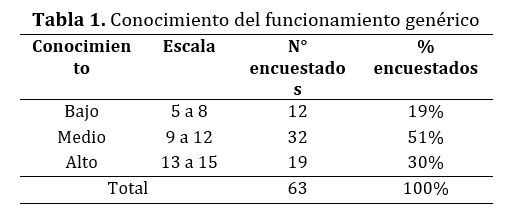Digital skills in Mypes in the San Martín region, Peru
DOI:
https://doi.org/10.51252/rcsi.v2i2.385Keywords:
access to information, operation, digital tools, usefulnessAbstract
Possessing digital skills is a necessity that Mypes are obliged to have in the current changing market, where commerce has been influenced by TIC. In this sense, the objective of the study was to determine the level of digital skills of Peruvian Mypes in the San Martín region in the post-Covid-19 era. For this, a basic descriptive level research and non-experimental cross-sectional design was carried out. 63 Mypes participated, which answered a validated and reliable survey. The results showed that the level of knowledge of the generic operation of digital tools was medium in 51%, high in 30% and low in 19%; the level of knowledge of digital tools was medium in 38%, high in 33% and low in 29%; the level of use of digital tools was medium in 63%, high in 24% and low in 13%; in addition, the level of access to digital information was medium in 48%, low in 35% and high in 17%. Concluding that the level of digital skills in Mypes de San Martín is regular.
Downloads
References
COMEXPERU. (2020). Las micro y pequeñas empresas en el Perú Resultados en 2020. LAS MYPES EN 2020. https://www.comexperu.org.pe/upload/articles/reportes/reporte-mypes-2020.pdf
Cruz Coria, E. (2021). Estrategias de resiliencia organizacional de las micro y pequeñas empresas turísticas de Pachuca de Soto, Hidalgo ante la COVID-19. Nova Scientia, 13(27). https://doi.org/10.21640/ns.v13i27.2869
Cuesta Santos, A., & Lopes Martínez, I. (2020). Hacia las competencias profesionales 4.0 en la empresa cubana. Revista Cubana De Ingeniería, 11(1), 66–76. https://rci.cujae.edu.cu/index.php/rci/article/view/738
Esteban-Navarro, M.-Á., García-Madurga, M.-Á., Morte-Nadal, T., & Nogales-Bocio, A.-I. (2020). The Rural Digital Divide in the Face of the COVID-19 Pandemic in Europe - Recommendations from a Scoping Review. Informatics, 7(4), 54. https://doi.org/10.3390/informatics7040054
González Ochoa, A. L., Machado Ramírez, J. G., Talavera Hernández, M. E., & Sevilla Rizo, A. (2020). Influencia de las TIC en el proceso administrativo. Revista Científica de FAREM-Estelí, 33, 52–63. https://doi.org/10.5377/farem.v0i33.9608
Guzmán Duque, A. P., & Gutiérrez Rojas, C. D. (2018). Las competencias digitales y el uso de las tecnologías sociales: el valor agregado en la comercialización en el sector calzado en Bucaramanga. I+D Revista de Investigaciones, 11(1), 17–27. https://doi.org/10.33304/revinv.v11n1-2018002
Hernandez Sampieri, R., Fernandez Collado, C., & Baptista Lucio, P. (2014). Metodología de la Investigación (Sexta Edic). McGRAW-HILL. https://www.uca.ac.cr/wp-content/uploads/2017/10/Investigacion.pdf
Inga-Ávila, M., Churampi-Cangalaya, R., Inga-Aliaga, M., Rodríguez-Giraldez, W., & Vicente-Ramos, W. (2022). Influence of people, processes and technology on business strategy in small enterprise in a Covid 19 environment. International Journal of Data and Network Science, 6(3), 779–786. https://doi.org/10.5267/j.ijdns.2022.3.003
Jalil Naji, M. (2018). Industria 4.0, competencia digital y el nuevo Sistema de Formación Profesional para el empleo. Revista Internacional y Comparada de Relaciones Laborales y Derecho Del Empleo, 6(1), 1–35. http://ejcls.adapt.it/index.php/rlde_adapt/article/view/555
Lissitsa, S., Chachashvili-Bolotin, S., & Bokek-Cohen, Y. (2017). Digital skills and extrinsic rewards in late career. Technology in Society, 51, 46–55. https://doi.org/10.1016/j.techsoc.2017.07.006
Osorio Chavez, L. M., Octavio, E., & Yudet, D. (2022). Digital Marketing in the Hardware Business, an Opportunity for the Peruvian MYPES Positioning and Surviving over the Covid-19 Pandemic. In 13th International Conference on E-Education, E-Business, E-Management, and E-Learning (IC4E) (2022), Association for Computing Machinery, 392–398. https://doi.org/10.1145/3514262.3514286
Vizalote-Rodriguez, G. A. (2022). Contribución de las TI en la mejora de la productividad de las PYME. Revista Amazonía Digital, 1(1), e164. https://doi.org/10.55873/rad.v1i1.164

Published
How to Cite
Issue
Section
License
Copyright (c) 2022 Marx Erazo-Panduro, Ángel Cárdenas-García, John Ruíz-Cueva, Juan Carlos García-Castro, Wilson Torres-Delgado, José Tuesta-Estrella

This work is licensed under a Creative Commons Attribution 4.0 International License.
The authors retain their rights:
a. The authors retain their trademark and patent rights, as well as any process or procedure described in the article.
b. The authors retain the right to share, copy, distribute, execute and publicly communicate the article published in the Revista Científica de Sistemas e Informática (RCSI) (for example, place it in an institutional repository or publish it in a book), with an acknowledgment of its initial publication in the RCSI.
c. Authors retain the right to make a subsequent publication of their work, to use the article or any part of it (for example: a compilation of their works, notes for conferences, thesis, or for a book), provided that they indicate the source of publication (authors of the work, journal, volume, number and date).








